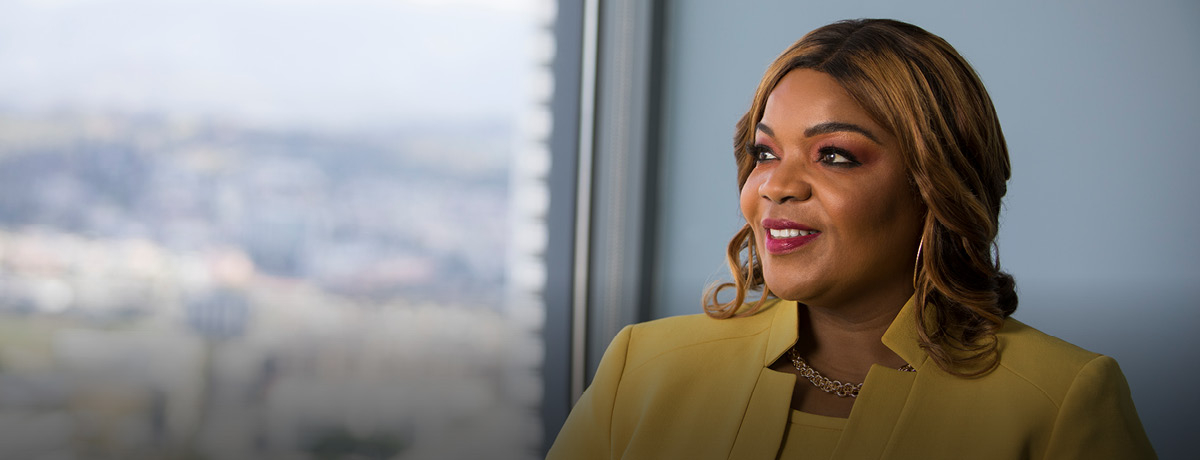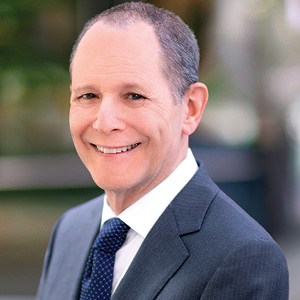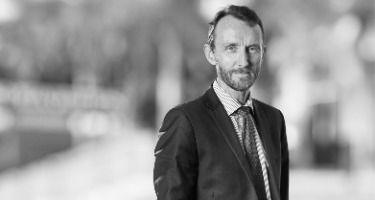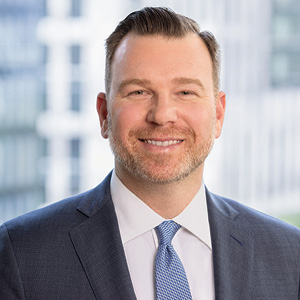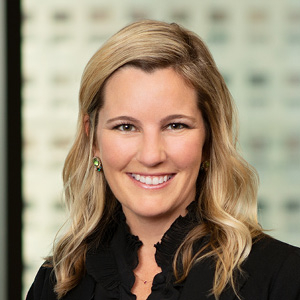As a child, Angela Reddock-Wright regularly practiced her exceptional oratorical skills at church and school—leading those around her to declare that she was destined to become a lawyer.
Although she toyed with other ideas—like becoming a newscaster or talk-show host—she ultimately fulfilled that destiny, graduating from UCLA School of Law in 1995. With the constant support of her family and community, what she has accomplished since is nothing short of extraordinary.
Based in Los Angeles, she has focused her 26-year practice on labor and employment law, along with specialty areas such as Title IX, sexual assault, hazing and bullying cases in schools. After spending her first 15 years as a litigator representing clients in all aspects of workplace law, approximately 11 years ago, she built upon her years as a litigator and transitioned to working as a neutral mediator, arbitrator and independent workplace and Title IX investigator helping clients to resolve matters outside of the court process. Her neutrals practice includes the mediation and arbitration of the full gamut of employment and labor law cases, including wrongful termination, all forms of harassment and discrimination, retaliation, PAGA and other wage and hour matters, and Title IX, tort and sexual assault, hazing and bullying claims involving K-12 and independent schools, and colleges and universities.
She is the founder and managing partner of the Reddock Law Group of Los Angeles, established in 2011, and is a neutral with Judicate West, a well-regarded California dispute resolution firm.
In line with her initial childhood goal and desire to work in news media, Reddock-Wright now pursues that passion as a hobby by helping to educate both employees and employers on the latest employment laws and workplace trends that impact them with occasional appearances on national and local TV news, radio and print media. A crowning moment for her was appearing on ABC’s Good Morning America twice in 2021—once to discuss sexual harassment and #MeToo claims in the workplace, and the second time discussing the famous “Dr. Zoom” plastic surgery incident.
She also recently began hosting a weekend, community-based radio show called “Legal Lens with Angela Reddock-Wright,” on Tavis Smiley’s KBLA Talk 1580 radio station of Los Angeles. The show is a passion project that allows her to help educate community members on the legal and policy issues that impact their lives on a daily basis.
She also serves on several non-profit boards, and this May published her first solo book: The Workplace Transformed: 7 Crucial Lessons from the Global Pandemic: Moving Beyond COVID-19 and Embracing the New Future of Work (Red Penguin Books).
She has been elected and appointed to numerous public sector boards and commissions and works as an adjunct instructor in the mediation and peacemaking programs at USC Gould School of Law and California State University, Dominguez Hills and in the business and human resources certification program at UCLA Extension.
She was selected as a German Marshall Fellow to Europe, traveling to such places as Brussels, France, Germany, Poland and Spain to learn more about the intersection of business, government and civic engagement in those countries and throughout Europe. She also was a civic fellow to Israel with the Jewish Federation of Greater Los Angeles. Notably, she has been listed in The Best Lawyers in America® since 2020 in Litigation - Labor and Employment.
Best Lawyers recently sat down with Reddock-Wright over Zoom. During the conversation, which has been edited for length and clarity, she discussed her beginnings, her career, her new book, the impact of the pandemic on the workplace, the appointment of Justice Ketanji Brown Jackson and other topical legal issues.
Your firm biography says you’re from Birmingham, Alabama, and Compton, California. Can you elaborate?
[Laughs] Good question! My parents, Cornelius Reddock Jr. and Wilma Hairston, were married at the time, and my dad was in the U.S. Army, stationed in Würzburg, Germany. I was born in Germany, but I don’t remember too much about being a child there, but I had a chance to visit as a young adult while studying abroad in Europe in college. When I was about one or two years old, my parents returned to their hometown of Birmingham, Alabama, where we have lots of family. I remember growing up in Birmingham. My parents divorced when I was young, and although my dad was stationed at different places around the world and I saw him regularly, my mom initially stayed in Birmingham. I grew up there until I was 9 years old. Three of my mom’s siblings had moved to California, seeking a better life post-Civil Rights Alabama. In 1978-’79, my mom moved us there, and I spent the rest of my childhood and teen years growing up in Compton, California.
When I was in junior high school, my school—Willowbrook Jr. High School with the great principal Dr. Lawrence Freeman (RIP)—had a sister program with the Brentwood School in the Brentwood area of Los Angeles—a more affluent area of the city. I was recruited to the school by the then admissions director Dave Velasquez, affectionately known as “Mr. V,” and who himself had grown up with humble means, and had a chance to go there for high school on scholarship. That was one of the major milestones of my educational and personal life, exposing me to a world that up to that point I maybe saw on TV but hadn’t experienced. I always knew I would go to college, but the experience exposed me to and opened my eyes to other types of colleges, such as liberal arts colleges and colleges on the East Coast.
One of my high school mentors, my English teacher Ed McCatty, had gone to Amherst College in Amherst, Massachusetts. After a college visit to Amherst, and based upon Mr. McCatty’s encouragement and recommendation, along with others, I decided to attend Amherst and graduated with a degree in English and political science. I had four great years there, with one of the highlights being my serving as the one of the Directors of the Amherst College Gospel Choir. We had a chance to travel throughout the East Coast, and in my senior year, we did a tour to Los Angeles and sang on the then Arsenio Hall Show. Those are great memories.
Other highlights of my college career included participating in the debate team and serving as a Resident Advisor for the Charles R. Drew Black Cultural House. This was a particular honor because Charles Drew is distinguished alumnus of the college. I also had the opportunity to study abroad in my junior year at St. Catherine’s University, Oxford. That was such a special and once in a lifetime experience that I will never forget. While in Oxford, I even sang in a local R&B band for fun—this is probably something I never would have done in the U.S.! [Laughs]
After college, I decided to return home to Los Angeles to attend law school at UCLA. Prior to law school, I participated in a one-year fellowship in public policy and public affairs with the Coro Foundation of Los Angeles. This program was amazing. It helped introduce me to the inner workings of Los Angeles’ business, political, government and civic communities, and helped shape my interest in public, community and civic service which has been a big part of my life and career to this day. At one point in my journey, I even ran for Los Angeles City Council and served on the Los Angeles Community College Board of Trustees, the largest community college district in the country. I also have served on several public sector boards and commissions at the state and local levels.

Why law school?
Somehow, it felt my life and pathway were always geared toward law school. As a kid, I grew up in the Baptist church and our church—Citizens Zion of Compton, CA—was committed to getting the kids of the church involved at a young age. So, other kids in my church and I grew up speaking, doing the church announcements, greeting visitors and performing in church plays. We also participated in oratorical contests, whether at church or in our schools. I was particularly active in these activities and was considered to be a good speaker. Because I was a good speaker, people would always say, “You should be a lawyer!” So it was planted in my head very early. I actually thought I would go into broadcast journalism and become a newscaster or talk-show host, but my path did not lead that way.
Given the seeds that were planted in my head over the years, coupled with Amherst having a strong legacy of many of its alumni becoming lawyers, I decided to go to law school. Amherst also had an alumni-student mentorship program and both of my assigned mentors were lawyers. During my summers home, I had a chance to shadow them to see in real time what lawyers do. Based on seeing them in action and liking what I saw, law school seemed like a great choice for me. And I’m glad I chose that path because I absolutely love being a lawyer, and now a mediator and neutral.
Why employment law?
Being from Los Angeles, I thought I was going to be an entertainment lawyer, specifically a music lawyer—partly because I grew up with gospel music and, at Amherst, I was one of the directors of the gospel choir and had love and passion for gospel music. When I started law school, I thought I would represent gospel and other music artists, and maybe start my own label. While in law school, I worked for an entertainment litigation firm, and was active in several entertainment law organizations, and took classes in entertainment law.
However, when I graduated from law school in 1995, the job market was a bit soft after having been pretty robust. Also, at that time, most entertainment firms and companies didn’t hire for full-time attorney positions fresh out of law school. Having lots of education debt and wanting to get started in my career, my focus was on finding a good job with a good law firm. The first job I got out of law school was with a boutique employment litigation firm. And from day one, I loved it. I fell in love with employment and labor law and never looked back. I still love gospel and other music but opted not to pursue that line of work as a career. I love what I do and feel that I am able to make a difference every day. That gives me great joy.
Especially now as a mediator, arbitrator and workplace investigator —I get to do work every day that improves relationships between employees and employers, and which contributes to the growth and development of the workplace. After 26 years in this business, my mission is to use my background, skills and experience to help employees and employers to work together to build great, thriving and healthy workplaces. I feel honored and extremely fortunate to do the work that I do every day. I consider it to be a part of my life’s work and as the opportunity to live out both my personal and professional mission.
What’s the most interesting part of your work?
The work I do as a mediator. I enjoy rolling up my sleeves and understanding the facts of what caused the workplace relationship to go awry and end up in litigation or possible litigation. I enjoy uncovering the story behind the story, peeling back the onion and hearing all sides of a story or dispute. I like using that information not only to help parties settle cases, but also to grow from the process. In an ideal sense, a strong mediation process is transformative in nature—it helps the parties to part ways amicably, while also helping employees to move forward to their next job or stage of life in a positive way, while providing employers with insights and opportunities to grow and enhance their work environment for current and future employees.
And the least interesting?
Honestly, I can’t think of a thing. That goes to why I enjoy employment and labor law, and why I never really looked back on a career in entertainment. Whether the economy is up or down, no matter what is happening in the world, the world of work is always evolving. There are always new issues and there is never a dull day.
These last two plus years have been particularly interesting with the pandemic and the rise of employee activism in the workplace with the re-igniting of the #MeToo movement and issues relating to racial, gender and other social issues coinciding with George Floyd’s death in 2020. This is not your mother or father’s workplace anymore. Employees are demanding more and seeking more accountability from the companies and organizations they work for. I believe we are entering a new era of work and that, undoubtedly, the laws and policies of yesterday will have to evolve to accommodate, address and support the new workplace of today.
So when I have a chance to see what’s happening in real time through the cases I mediate, arbitrate or investigate, it’s exciting and keeps me constantly learning, developing and honing my skills. In my 26 years of practicing, there has never been a lull, except maybe for that first week of the pandemic (laughter). In fact, I think we all were a little worried in that first week—none of us knew what this new world would look like, or how and in what manner we would continue to work. We certainly did not think we would still be in the midst of a pandemic two plus years later.
Speaking of the pandemic, what do you think has been its biggest impact on employment, and what do you see moving forward?
I wrote about this in my new book. I wrote the book because I did not want this past two plus years of the pandemic to pass (or continue) without our taking a collective moment to reflect and think about how this time has impacted us both personally and professionally and in the workplace. On a personal note, I forced myself to take time out to write down my thoughts about this time in history and how it has made me more appreciative of the simplest things—my family, my friends and of course, life itself. I think we have to do a similar inventory with respect to work.
In my opinion, it would be awful for us all to have gone through this collective experience together and not stop and think about what the time has meant—what can we do better—how can we be kinder to one another.
And in the workplace—how has the workplace changed? What can we do to be better prepared when the next pandemic or upending situation comes around? How can we better support essential and frontline workers, family caregivers, people of color and those most impacted mentally, emotionally, physically and financially? What is the future of remote work? How can we better support family caregivers, women, people of color and those most impacted by these downtimes and downturns in our economy?
I do not claim to have all the answers, but my book raises these questions and challenges us all to take stock of this unprecedented time in history. In the book, I quote the great Maya Angelou who stated, “History, despite its wrenching pain, cannot be unlived, but if faced with courage, need not be lived again.” This is my hope for us all. That is the purpose and meaning behind my book.

I wanted to ask about last year’s California court ruling that found the Protect App-Based Drivers and Services Act unconstitutional. What are your thoughts about so-called gig workers and the protections they should have?
I am a neutral and I do not represent clients on these or other issues, so I do not advocate one way or the other. However, whether it's the new gig laws or other new laws designed to address the new economy we are living in, I believe we are living in different times and the world has changed. We no longer have traditional worker categories such as “employee,” “contractor,” “consultant” or “non-employee.”
There is a new category of worker that does not easily fall within either of these categories—they fall somewhere in the middle. Both federal and state laws will have to be updated to reflect this new class of worker. Legislators, policymakers and lawyers must grapple with this evolving workplace landscape, and how to build this new landscape into our also evolving economic and legal structures.
What are your thoughts about the appointment of Ketanji Brown Jackson to the Supreme Court?
I’m absolutely excited about it. I watched from the moment President Biden announced his nomination of her, through the confirmation proceedings, all the way to the celebration on the White House lawn.
She’s definitely qualified. She represents all that is good about our country—she represents the American Dream—even if you come from humble means, if you work hard, you can do and become anything you want to be. Indeed, as a fellow African American woman and lawyer, I am proud of Justice Jackson and see much of my own story in hers, as I am sure many people can.
But this is not a moment that only Black or African American people should be proud of—all Americans and global citizens of good will should be proud. Justice Jackson’s appointment represents the best of all of us and is one more example of how far our country has come and is still progressing. It makes me hopeful for the future.
There was of course a lot of talk about her being the first African American woman on the Supreme Court. Should we just speak of people as judges and lawyers without other defining characteristics, or is it important to mention gender and race?
Yes, I believe it’s important. We no longer live in a “melting pot” society. We live in a society where, if we are to have true conversations about diversity, equity, inclusion and belonging, we must encourage individuals to bring their “total” selves to the table—whatever makes you who you are is welcome, appreciated and valued. We must have an attitude that assures individuals that, no matter their racial, ethnic, gender or other background, they bring a unique perspective that contributes to the discussion and that their “difference” helps to contribute to a more vibrant and dynamic organization.
So who am I? “I am Angela—an African American, married, heterosexual woman, with both southern and urban roots, who grew up in church and has had amazing world experiences, and values family, community and civic engagement.” This is who I am and I would hope that any organization or person that I have the opportunity to work with sees these attributes as value-adds and not as something that makes me “other” or less than. This is how we must embrace and appreciate everyone that we have the opportunity to engage and work with. This is true DEI at its core and in its most transparent and authentic state. This attitude represents the world and workplace of the 21st century.
What about the recent California law that requires a minimum number of women on corporate boards? You’ve served on numerous boards. Why is having women on boards important?
For all the reasons we’ve talked about. The world is changing. The world is diverse. Companies must reflect the consumers and customers they serve, and this includes in their employee base, among their management and on their governing boards of directors. It’s a disservice to those companies and the people they serve, as well as investors, not to have individuals at the table who reflect the diversity of views, thoughts and buying power of the people the companies sell to or provide services to. In just a few short years, the so-called “minority” will be a majority. So it’s only appropriate that corporate boardrooms would reflect the changing times.
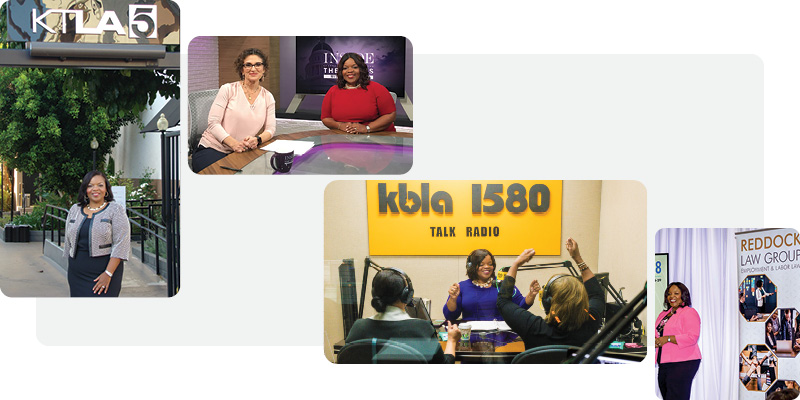
You’ve said you believe in “doing well by doing good,” and you’re able to reflect that by virtue of the type of law you practice. Given the otherwise conflictual nature of law, do you think all lawyers can abide by that dictum? Or are you lucky in that sense because of the kind of work you’ve chosen?
Absolutely. I am thankful because I have the great fortune of trying to do good in the work I do as a mediator and neutral each day. I also believe this is true of most lawyers. Whether a lawyer represents employees, companies or organizations, by virtue of the oath we all take, we each have a responsibility to do good by providing services of the highest integrity to our clients. Most lawyers I know take this oath seriously and “do good” by representing and advocating for their clients’ interests, which I consider to be good in and of itself.
Beyond that, most lawyers I know also mentor up and coming lawyers and serve on non-profit boards and support causes that they are passionate about. Most lawyers go to law school with an intent to make a difference, and they carry that out in their practice and in the work they do outside of their respective law practices.
Lawyers sometimes get a bad rap, but I feel honored to be a part of such a distinguished group of professionals. Most lawyers and legal professionals I know, go above and beyond to give back and to make a difference in their communities. They believe, as I do, in “doing well by doing good,” and “to whom much is given, much is required.”
If you could go back in time and give yourself advice on your first day of law school, what would it be?
So many things, but here are a few: (1) Breathe. (2) Take one day at a time. (3) Don’t sweat the small stuff. (4) Enjoy the journey because time really does fly by fast. (5) Remember the principle of “each one teach one” and every place you go, mentor, and bring others along with you—even if you are the first, make sure you are not the last. (6) And finally, strive to make a difference and everything else will follow. I also want to thank God and my Mom Wilma, dad Neal, grandparents (especially my grandmothers Fletta [RIP] and Sadie Mae) aunts and uncles (especially Uncle Norman/Stanley and Aunt Nadine), and other family, friends, church and community members and colleagues, who have sowed into my life. I am grateful for the many sacrifices that were made so I can be who I am and do what I do today. I could not have done it without each of them. Last but not least, I am grateful to my husband Steve who walks by my side and supports me in all that I do. I have so much to be thankful for.
Sara Collin is a Quebec-based lawyer, specializing in legal writing, editing, research and translation throughout Canada.
